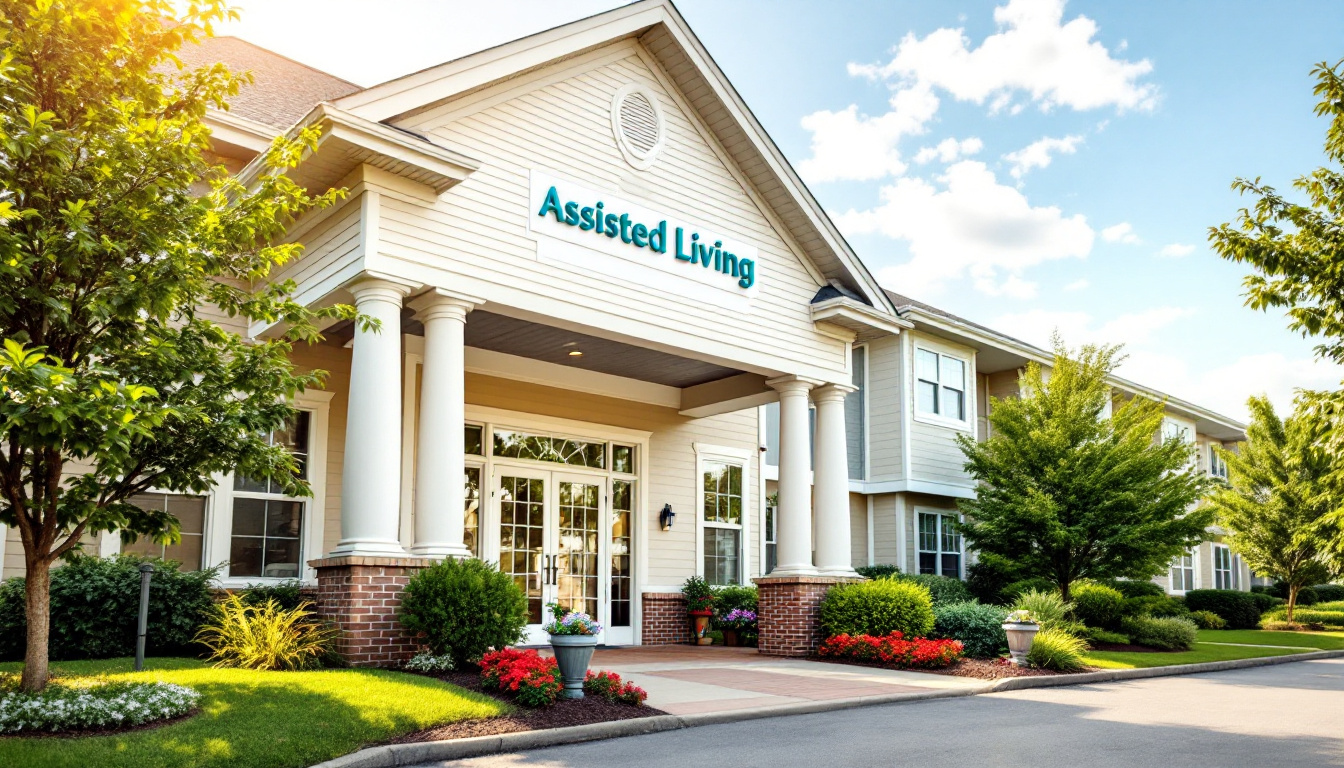The Role of Family in Long-Term Senior Care Planning
Family Engagement: A Cornerstone of Successful Long-Term Senior Care

Understanding the Critical Role of Family in Elder Care Planning
Family involvement in long-term senior care is a multidimensional and vital component that influences the quality, safety, and emotional well-being of older adults. From providing day-to-day support to participating in complex decision-making processes, families are instrumental in shaping personalized care strategies that meet the biological, psychological, and social needs of the elderly. This article explores the significance of family participation, the roles they play, and effective strategies for fostering meaningful involvement, ensuring better outcomes for seniors and their loved ones.
Why Family Involvement is Essential in Care Planning

Why is it important to involve family in care planning?
Involving family members in the care planning process offers numerous benefits that directly impact elder care quality. Families often serve as continuous sources of emotional support, help residents understand and adhere to their treatment plans, and advocate for their needs. This active participation can lead to better health outcomes, such as higher satisfaction with care, reduced need for hospitalizations, and improved psychosocial well-being.
Family involvement also plays a crucial role in promoting safety. When families are engaged, they can communicate their loved one's preferences, monitor changes in health or behavior, and collaborate with care staff. This shared approach fosters open dialogue, transparency, and shared decision-making — all vital for reducing risks and addressing individual needs holistically.
Furthermore, family participation supports a comprehensive approach to elder care by considering biological, psychological, and social factors. It ensures that care plans reflect personal histories, cultural backgrounds, and individual preferences, creating a more personalized and effective environment.
Overall, involving families enhances the effectiveness of care, strengthens relationships, and helps achieve positive, sustainable health outcomes for older adults in long-term care settings.
The Multifaceted Role of Family in Elder Care
What is the role of the family in elder care?
Family members are central to the well-being of older adults receiving long-term care. Their involvement extends well beyond simple visits, encompassing a broad spectrum of support needs.
Physically, families aid with daily activities such as bathing, dressing, feeding, and mobility. These essential tasks ensure elderly individuals can maintain comfort, safety, and independence as much as possible. Many family caregivers assist with household chores like shopping, laundry, and managing bills, with some helping daily.
Emotionally and socially, families provide companionship, emotional reassurance, and help residents stay connected with loved ones and community activities. This support can significantly enhance mental health, reduce feelings of loneliness, and improve overall satisfaction with care.
Beyond day-to-day assistance, families serve as advocates. They help navigate complex healthcare systems, participate in care planning meetings, and communicate resident needs to staff. They also manage advanced decision-making, often through legal means such as powers of attorney, ensuring that resident preferences are respected.
Research indicates that families often remain involved post-placement in nursing homes, assisted living, or other long-term care settings. Visits are frequent, with some occurring daily, countering myths of abandonment. Family involvement is influenced by factors like geographical proximity, prior contact frequency, and facility policies.
Enhanced family engagement correlates with better resident outcomes, including higher life satisfaction, improved psychosocial well-being, and even earlier discharge to community settings. To support families, interventions such as family-staff partnership programs, education, and structured communication channels have shown promise.
Despite these benefits, caregivers often face stress, fatigue, and health issues. It is crucial for care systems to provide resources like respite care and support groups to help families sustain their vital role.
In summary, families are integral to elder care, contributing physically, emotionally, socially, and via healthcare advocacy. Their support not only improves residents' quality of life but also fosters more personalized and effective care environments.
Benefits and Challenges of Family Participation

What are the benefits of involving family members in a patient's care plan?
Family involvement in long-term care offers significant advantages for residents and their loved ones. It provides emotional comfort, helping residents feel more secure and supported in unfamiliar settings. Family members often assist with understanding complex medical information, ensuring that care aligns with the resident's preferences and needs.
Active family participation fosters a holistic approach, contributing to better health outcomes such as increased satisfaction, quicker recovery, and reduced chances of hospital readmission. Families also serve as advocates, communicating needs and concerns effectively to care staff. Their involvement helps ensure transparency and adherence to treatment plans, ultimately leading to improved safety and ethical decision-making.
Despite these benefits, challenges like potential conflicts, confidentiality issues, and differing expectations can arise. These can be addressed with clear communication, cultural sensitivity, and education to foster collaborative relationships and resolve disagreements effectively.
Strategies for Effective Family Engagement in Long-Term Care

How can families effectively participate in long-term care planning?
Active family involvement is essential for ensuring that residents receive personalized and high-quality care. Starting early in family discussions about long-term care helps clarify expectations, address concerns, and develop a coordinated plan.
To navigate complex family dynamics, involving an unbiased mediator can facilitate open dialogue and mediate disagreements. This approach fosters understanding and consensus.
Focusing conversations on major decisions and future planning—rather than sensitive or emotional topics—helps keep discussions productive and goal-oriented. It allows families to prioritize essential issues like care preferences, legal arrangements, and financial planning.
Effective communication tools further support these efforts. Utilizing email can be advantageous when in-person meetings are challenging, offering time to compose thoughtful responses and reduce miscommunication.
Establishing clear roles and responsibilities among family members, including who will handle financial decisions, caregiving tasks, and advocacy, is crucial for a smooth process. Clarity prevents conflicts and ensures accountability.
Using 'I' statements instead of 'You' statements promotes empathetic communication by reducing defensiveness and fostering mutual respect.
When managed well, early and ongoing family discussions can lead to shared understanding, confidence in the care plan, and a stronger family network to support the resident's needs.
Impact of Family Dynamics and External Support Systems

How do family dynamics influence elder care planning?
Family relationships significantly shape how elder care is planned and managed. When family members are close geographically and have strong, open communication, they tend to collaborate more easily, sharing responsibilities and making collective decisions. Such cohesion often leads to more consistent involvement in daily care, advocacy, and emotional support for the elder.
Conversely, in families with conflict, fragmented relationships, or large distances, involvement may be limited or inconsistent. This can pose challenges, requiring external intervention or formal care arrangements. Technological tools like video calls and online care portals have become valuable assets, helping distant family members stay informed, engaged, and involved in decision-making.
Addressing conflicts within families and promoting open, honest discussions are crucial. Family mediators or facilitators can help manage disagreements, ensuring that the caregiving approach remains respectful and inclusive. Maintaining family cohesion involves fostering understanding of each member's role, encouraging empathy, and focusing on the elder’s needs.
Overall, recognizing and adapting to family dynamics ensures elder care planning is comprehensive, reflecting the preferences and best interests of the elder while supporting healthy family relationships.
Fostering Family Engagement for Better Elder Care Outcomes
Effective family involvement in long-term senior care planning is a multifaceted, dynamic process that significantly enhances the quality of life, safety, and well-being of elderly residents. By understanding the diverse roles families play—from physical support and emotional sustenance to advocacy and decision-making—care providers and families can develop collaborative strategies that address the complex needs of older adults. Clear communication, early discussions, and the thoughtful management of family dynamics are key to ensuring cohesive and effective care plans. Leveraging technological tools and community resources further supports distant or busy families, fostering sustained engagement. Ultimately, a committed, well-coordinated family effort leads to improved health outcomes, higher satisfaction, and a more dignified aging experience, emphasizing that family is not just a support system but a cornerstone of successful long-term care.
References
- Family Involvement in Residential Long-Term Care: A Synthesis and ...
- Family Caregiving Roles and Impacts - NCBI
- How to Manage Family Dynamics for Long Term Care Planning
- The Role of Family and Friends in Nursing Home Care
- The Role Of Family Involvement In Assisted Living Care Plans
- Module 5: Resident and Family Engagement: Facilitator Notes - AHRQ
- Navigating the Role of Family in Elder Care - Yodda
- Understanding the Importance of Elder Care in Modern Society
- Explore Professional Elder Care Benefits - Yodda





































































































